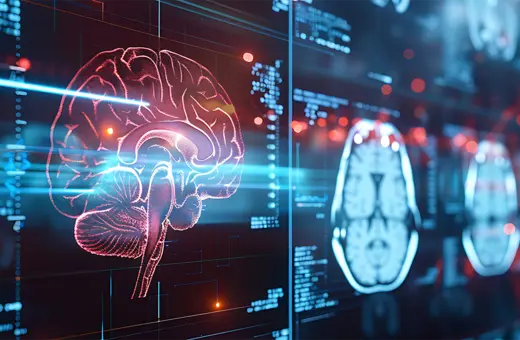In our scientific age, magic has been reduced to conjurers and wands. Yet, Newton and Wittgenstein saw the accounts of science as ultimately inexplicable. Should we see our theories as limited and, in a sense, magical or would this undermine all knowledge?
In our recent IAI TV debate on this subject, mathematician George Ellis sided with Newton: science will not uncover every mystery in the universe; there are some questions best left to philosophers.
Ellis made his name focusing on some of the big questions of cosmology and relativity. Along with Stephen Hawking, he co-authored 1973’s The Large Scale Structure of Space-Time, which attempted to describe the very foundations of space itself. More recently, Ellis has been focusing on top-down causation.
Here he speaks to the IAI about the dangers of magic, the importance of mystery, and the line that separates science from philosophy.
Arthur C Clarke’s third law of science fiction states that: “Any sufficiently advanced technology is indistinguishable from magic.” Does that apply to the levels of science and technology that we have reached today?
In a certain sense, that’s correct, yes. If you can press a button here and your garage door opens, in a sense that’s making magic.
Isaac Newton was mentioned a number of times in the IAI TV debate. He was deeply interested in alchemy. It could be argued that his theory of force looks a lot like the old Hermetic description of the secret powers of nature at work – “as above so below”. And now, of course, we can turn lead into gold…
Yes, that’s nuclear physics. It’s what happens in nuclear reactors. We can change elements and we do so via nuclear reactors – that’s a well understood part of science.
So do you see science as largely something born from alchemy or does it have separate roots?
No I don’t see it like that. I think that’s a dead end which didn’t get anywhere. The reason is that to make nuclear transformations you need enormous energy. The kind of equipment which the alchemists were using simply could not get anywhere near the energy you need to make nuclear change. They were using temperatures that would make chemical changes. Chemical changes leave the nuclear fixed. You have to get to enormously high temperatures and energies in order to make nuclear transformations.
But that points to a limitation of technology rather than insight…
Science and alchemy are trying to achieve a similar thing but the alchemists did not have the insight. Nowadays we understand exactly what you need to do. You need to change the protons and the neutrons in the nucleus and they didn’t have any theory of that kind when they were working on it. What they did understand is that you can change chemical elements: you can change hydrogen and oxygen into water, and you can change chlorine into salt. But that is a different level of transition that leaves the nuclear alone. It doesn’t change the elements; it makes compounds out of the elements. They didn’t understand the distinction between chemistry and nuclear physics.















Join the conversation